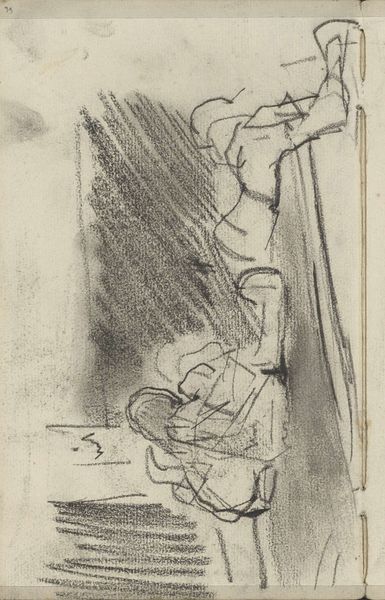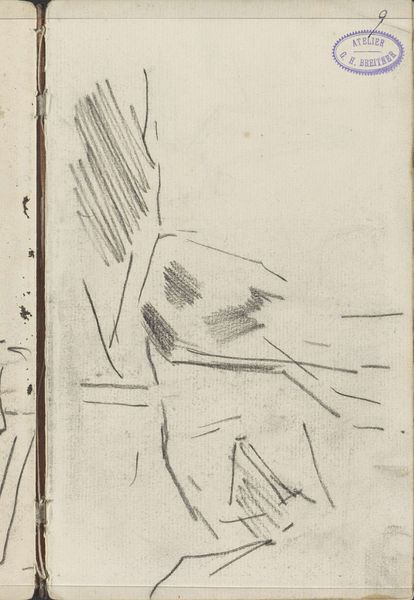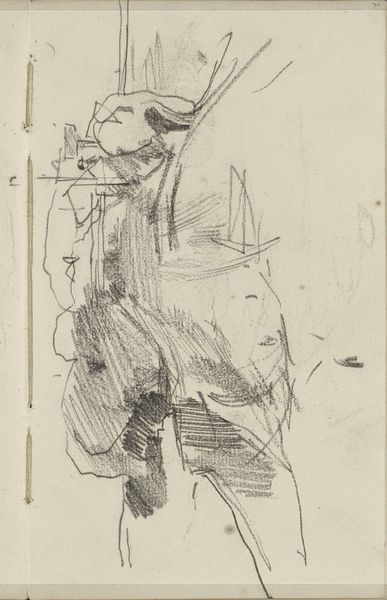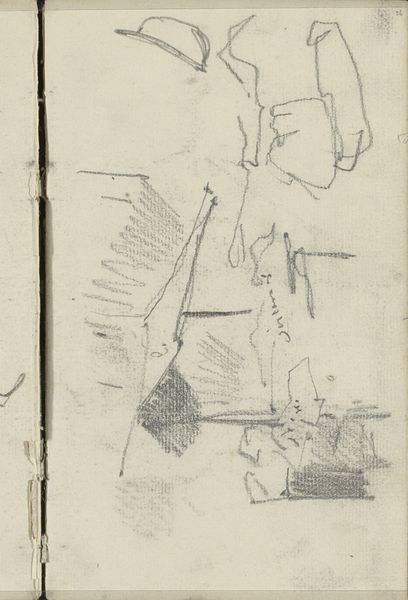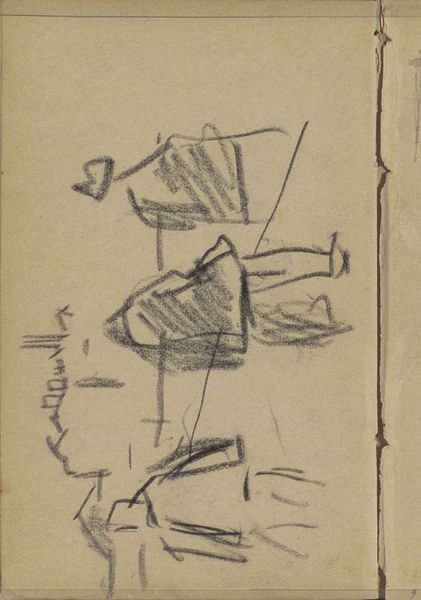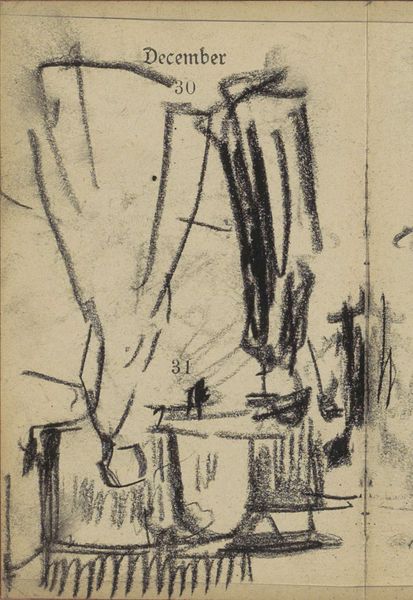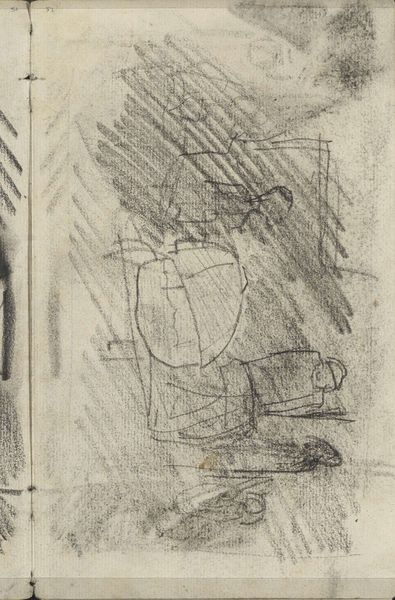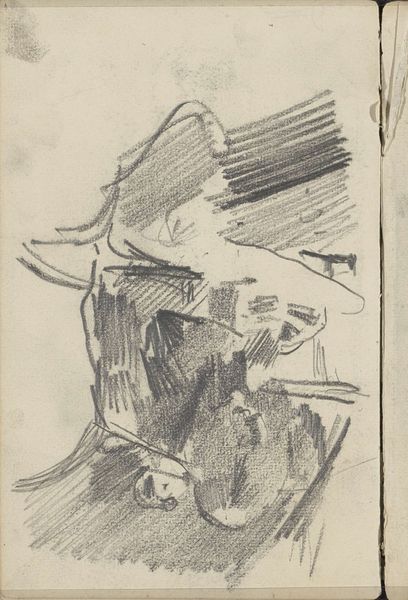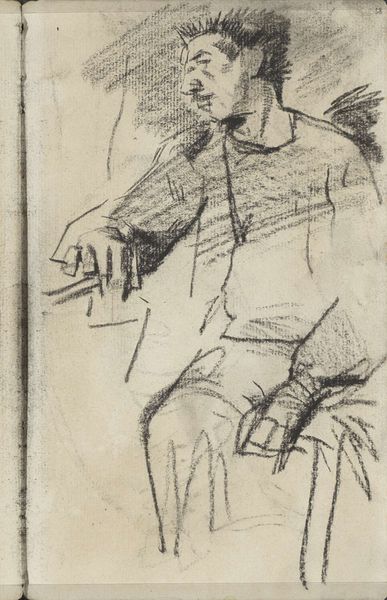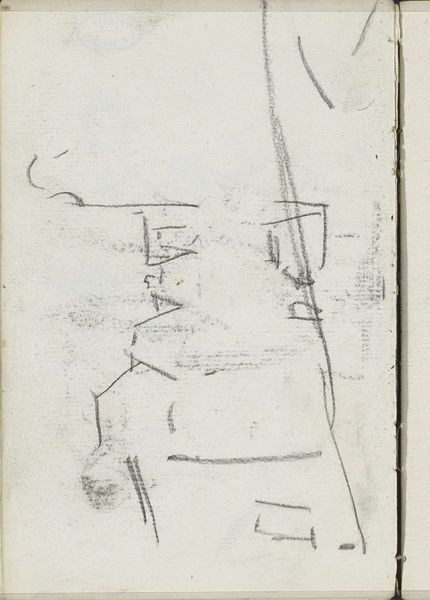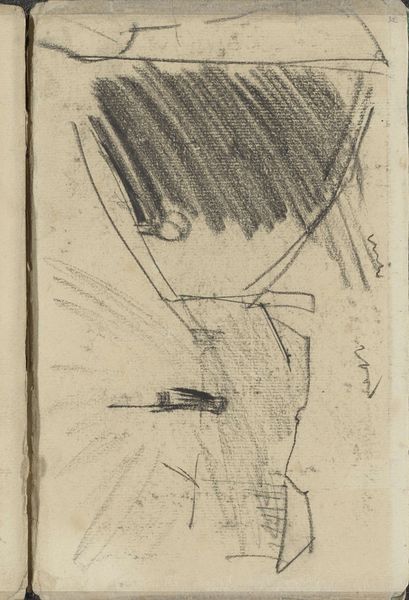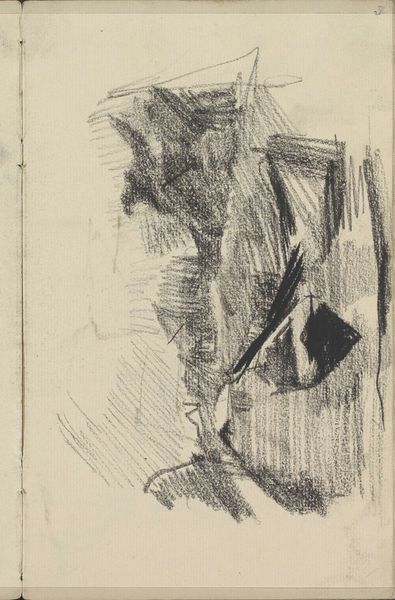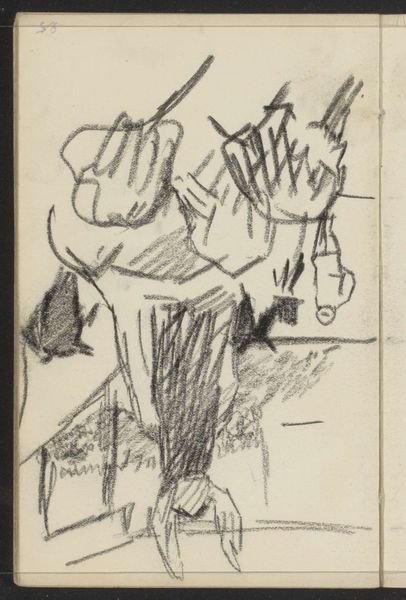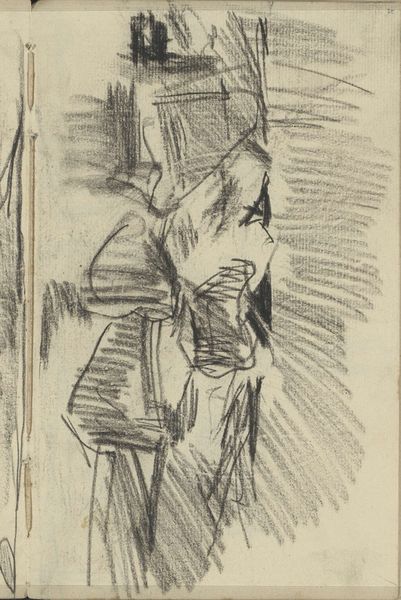
drawing, pencil, graphite
#
drawing
#
amateur sketch
#
toned paper
#
light pencil work
#
quirky sketch
#
impressionism
#
pen sketch
#
sketch book
#
figuration
#
personal sketchbook
#
pen-ink sketch
#
pencil
#
graphite
#
sketchbook drawing
#
sketchbook art
Copyright: Rijks Museum: Open Domain
George Hendrik Breitner made this drawing, titled 'Koe' or 'Cow' in English, in the Netherlands sometime between 1880 and 1923. Executed in graphite, it is one of many sketches, prints, and paintings of working horses and cattle that Breitner made in Amsterdam. It's easy to imagine how the culture of Amsterdam, a bustling center of trade and industry, might have influenced Breitner's artistic interests. While many artists were preoccupied with portraiture and depictions of wealth, Breitner chose to focus on the working class and the animals they relied on, capturing their daily lives in the city. You can consider this interest as a commentary on the rapid urbanization and industrialization that were transforming Amsterdam at the time. Breitner’s focus was on capturing fleeting moments, very much in keeping with the then nascent rise of photography as an art form. To truly understand this work, we might delve into historical archives, examining census records, photographs, and newspapers from the time period. What can we learn about the treatment of animals and the lives of ordinary citizens from such resources?
Comments
No comments
Be the first to comment and join the conversation on the ultimate creative platform.
